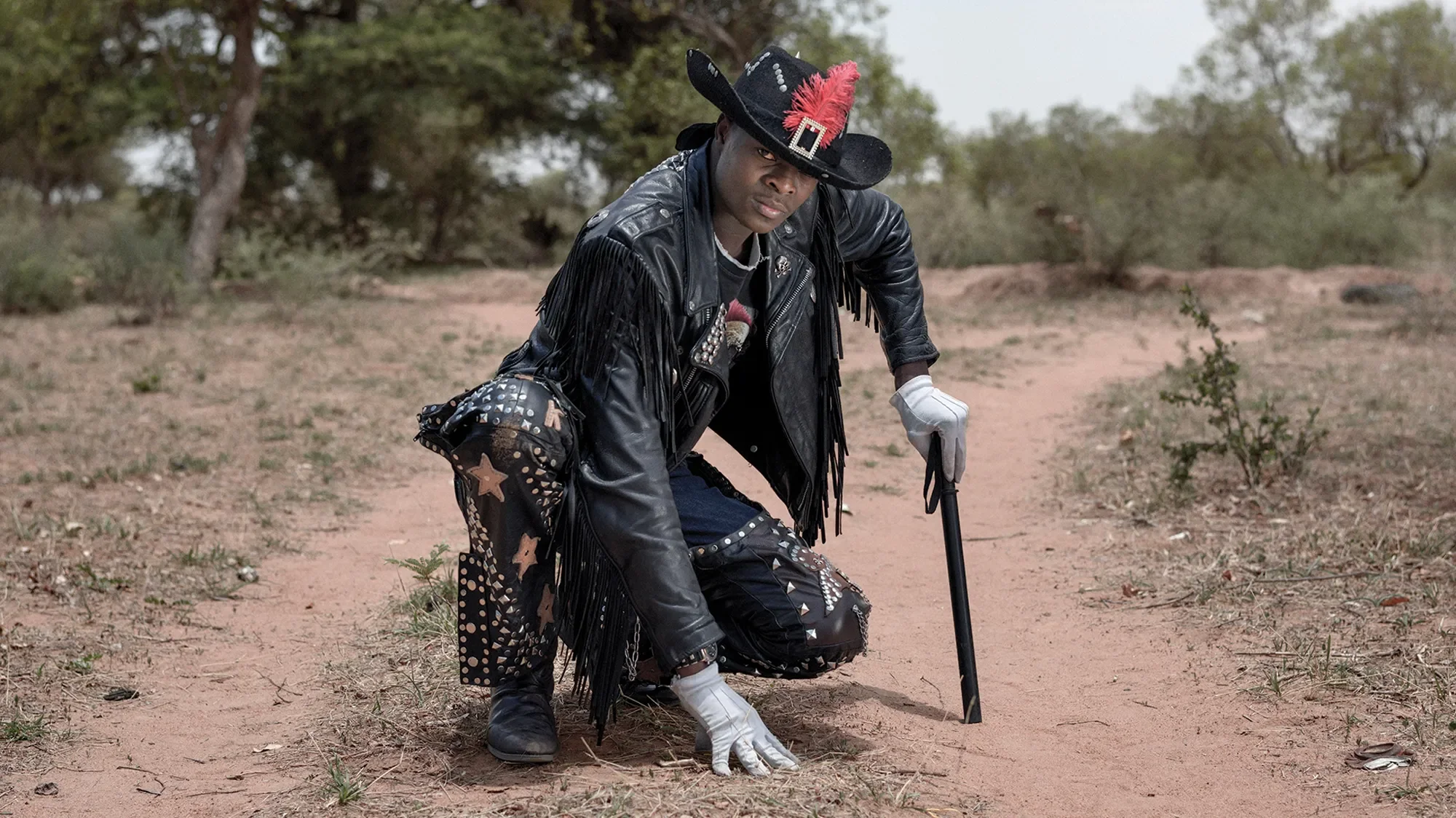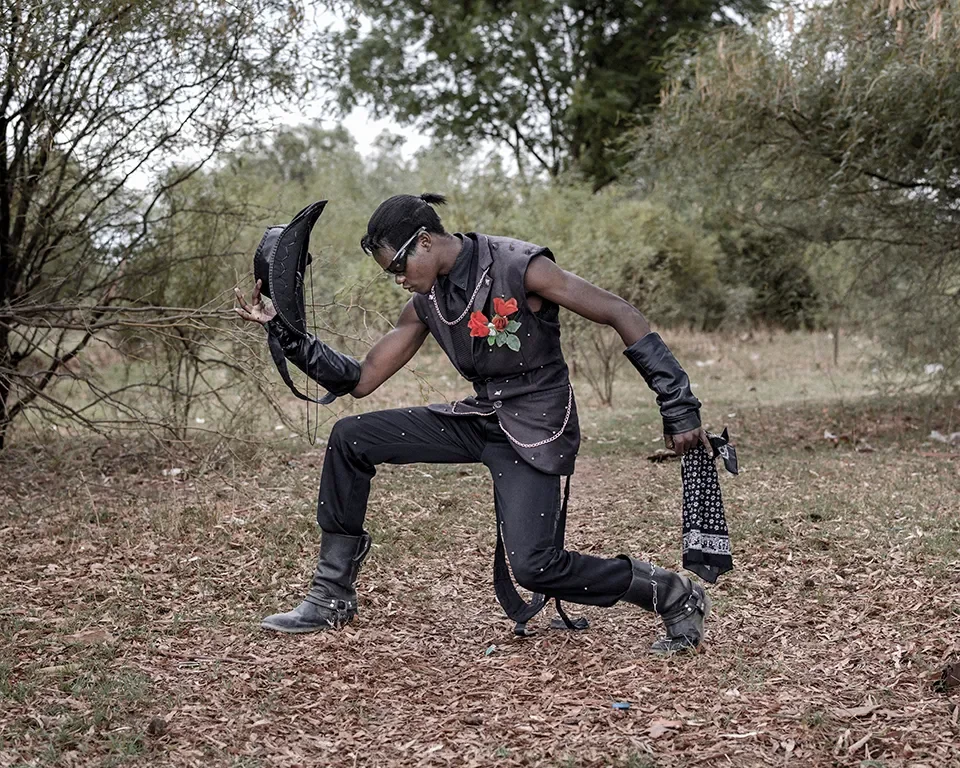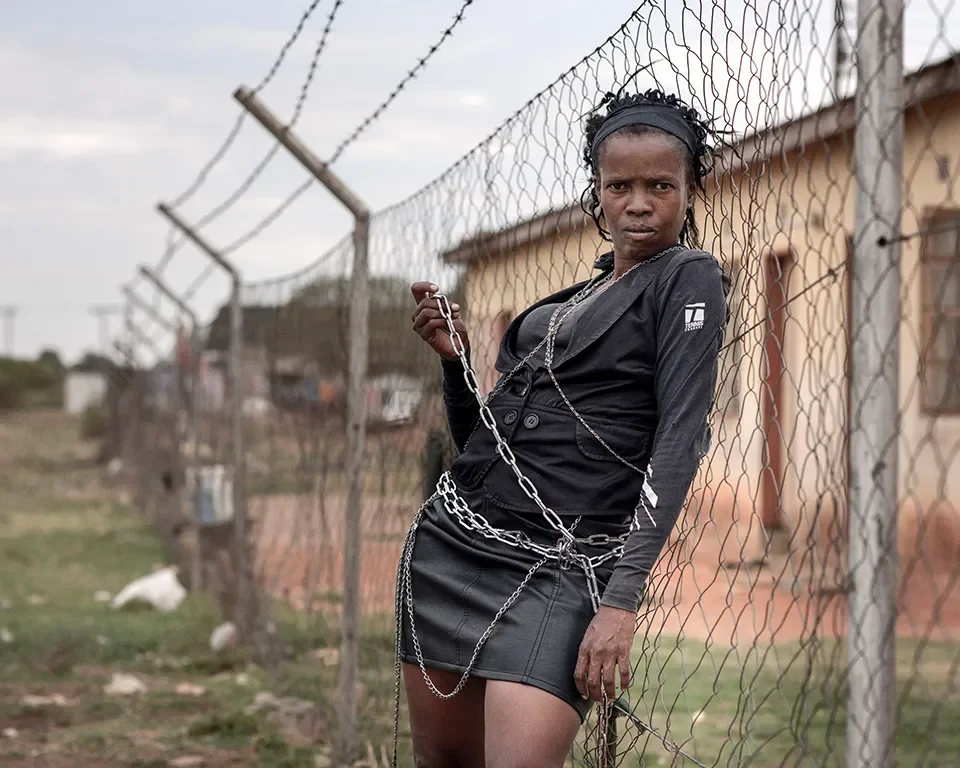Marok Style: Botswana's Death Metal Warriors Weave Identity and Resistance into Leather and Chains
Deep in the heart of Botswana’s arid landscapes, a fierce and utterly unique subculture is dramatically rewriting the global rules of fashion and self-expression. Marok, Botswana’s formidable death metal warriors, whose signature attire of heavy leather, gleaming chains, and rugged cowboy boots, coupled with an unmatched attitude, transcends mere style. This isn't simply about music; it's a profound declaration of resistance, a testament to unwavering brotherhood, and a powerful act of reclaiming identity in a world that rarely expects to witness such raw, unapologetic power emerging from Africa. From meticulously handmade gear to capturing global headlines, Botswana's metal heads are turning heads and forcefully breaking norms, demonstrating that genuine authenticity remains unyielding.
The death metal scene in Botswana is far more than just a genre of music; it is an all-encompassing lifestyle. Members of this vibrant community, affectionately referred to as "Marok" (a local slang term for rockers), don't merely listen to metal; they embody its spirit in their daily existence. Recognized for their untamed energy, fierce loyalty, and strikingly theatrical fashion, these metalheads have garnered significant recognition for their remarkable ability to blend global metal aesthetics with distinct local expressions of defiance, pride, and profoundly personal identity.
The origins of this powerful metal movement in Botswana can be traced back to the 1970s and 80s, an era when Western rock and metal albums began circulating among the youth in urban areas. Over time, these foreign influences profoundly fused with inherent local cultural undercurrents, such as a pervasive spirit of resistance to rigid societal norms, an enduring emphasis on the value of brotherhood, and a profound spiritual rebellion. What initially began as a niche musical interest gradually blossomed into a thriving, fashion-forward community that boldly challenges conventional expectations of what African subcultures are supposed to look like.
The visual signature of Botswana's metalheads is unmistakable and instantly iconic. Picture figures clad in heavy leather trench coats, military boots polished to gleaming perfection, studded wristbands that catch the light, worn cowboy hats, bandanas, and custom-made chains that clink with every movement. Crucially, these are not mere stage costumes; they constitute their daily wear, integral to their very being. The aesthetic masterfully blends universally recognized global metal tropes with ingeniously clever local adaptations, resulting in a style that is both profoundly functional and powerfully expressive. Each meticulously curated outfit serves as a personal narrative, telling a compelling story of loyalty, unyielding pride, and defiant individuality.
One of the most unique and striking aspects of the Botswana metal look is the clear, fascinating influence of Western cowboy and biker culture. These genres, popularized through 80s action films and classic Spaghetti Westerns, found an unexpected home in Botswana. With the nation's arid, expansive landscapes remarkably resembling scenes from the Wild West, metalheads instinctively adopted the rugged visual language of outlaws and rebels. This robust Western imagery was then seamlessly merged with the inherent darkness and aggression characteristic of heavy metal, resulting in an aesthetic that is rebellious, undeniably regal, and utterly unique in its African context.
Man in Marok Attire photographed by Pep Bonet
In true punk and metal tradition, a significant portion of their distinctive clothing is either handmade or personally customized. Local artisans meticulously tailor leather jackets; individual metal studs are painstakingly sourced and applied by hand; and boots are often acquired second-hand but then carefully restored and polished to perfection. This deeply ingrained DIY ethic ensures that their fashion remains both remarkably affordable and profoundly personal, while simultaneously nurturing a vibrant sense of independence and raw creativity within the community. For the Marok, the value of meticulous craft is held in as high esteem as the spirit of rebellion itself.
Within Botswana's metal scene, fashion symbolizes far more than mere personal style; it serves as a powerful declaration of unity, collective strength, and a shared philosophy. A subtle uniformity in their clothing, particularly the choice of heavy leathers and specific accessories, eloquently reflects the incredibly tight bonds that define their community. Yet, individual touches within this shared aesthetic, such as specific insignias or names proudly emblazoned on jackets, subtly reveal personality and even rank within their tribal structure. For the Marok, fashion functions as armor, a bold assertion of identity, and a visible mark of tribe.
While the death metal scene may often be externally portrayed as male-dominated, the women within Botswana's metal community have skillfully carved out their own space, characterized by equal power, creativity, and a fierce presence. Female metalheads frequently don modified versions of the traditional look, incorporating fitted leathers, intricate chains, and bold face paint. Through their unapologetic style, they not only challenge conventional gender norms but also confront broader cultural expectations, powerfully using fashion to assert their undeniable presence in a space where shared passion and unyielding pride define everything.
Woman in Marok attire photographed by Pep Bonet
Botswana's metalheads have truly ascended from a local phenomenon to a global fascination, gaining significant international attention. Their captivating fashion and fierce loyalty to the scene have beenprominently featured across global media, from Vice and CNN to independent documentaries and numerous fashion blogs, capturing imaginations worldwide. Yet, despite this burgeoning international spotlight and recognition, the Marok remain firmly grounded in their core values: an unshakeable brotherhood, profound respect for their craft and culture, and a raw authenticity that resolutely refuses to be commercialized or diluted. They are a powerful, enduring testament to the fact that identity, when worn with pride, speaks a universal language.


